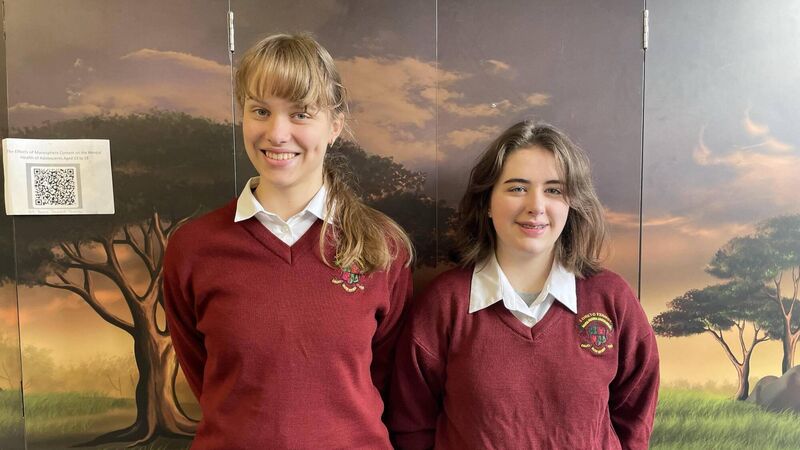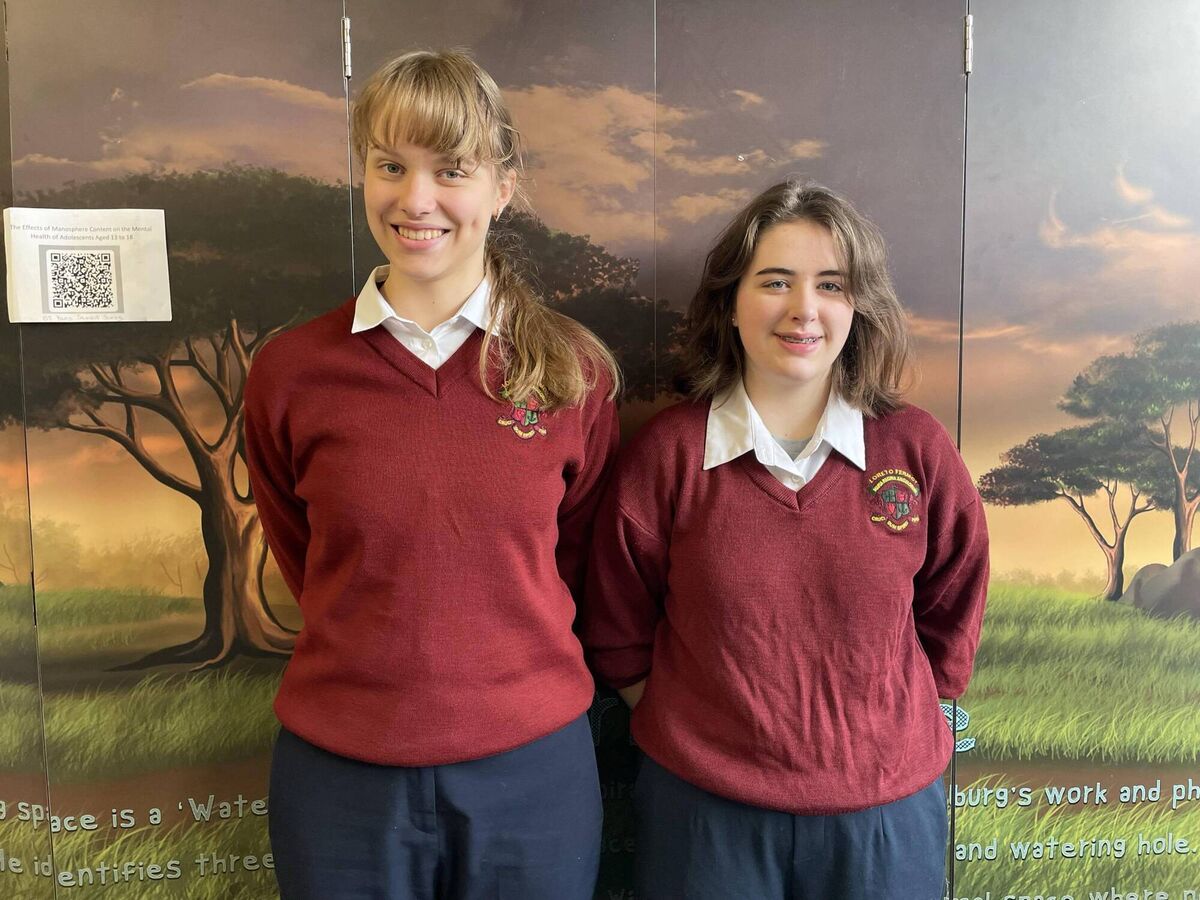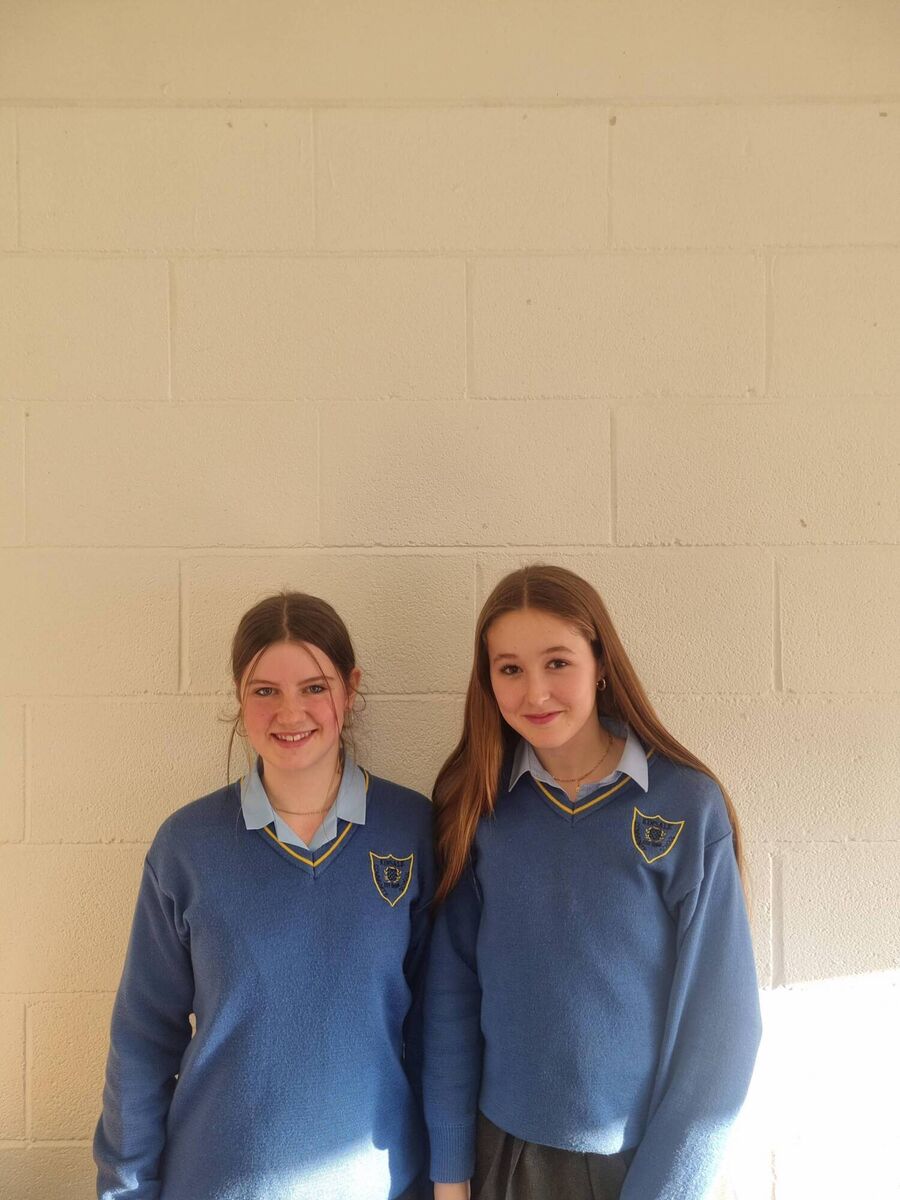Cork students to showcase projects at BT young scientist exhibition

Loreto Fermoy students Beatrice Cesonyte (left) and Amelie Nolan (right) looked at the impact of content from the manosphere.

What inspired Amelie and Beatrice to pursue their project was an influencer called Will Hitchins “who makes content against the manosphere and proves these people wrong,” says Amelie.
“

A smaller proportion, 22.6%, said it has a negative effect on them. 54.5% of students said (the social media apps) influenced their emotions at least some of the time.”

What prompted the study was simply looking at food labels and seeing how many additives and chemicals we are consuming.

He is not himself in favour of banning phones in class, adding: “But you have to look at it from both sides.”







 App?
App?


